Roll For Insight: Is Winning Everything?
April 5, 2019 by cassn
My life has been fuelled by competitive desire. Whether sports, games, or education, I have always pushed myself to outrun, outmaneuvre and outshine my competition. And that desire to succeed has been the driving force for most of my life.
My earliest memories revolve around wins and losses - my 100% completion achievement on Final Fantasy VII, the 99% completion rate on Rayman that haunts my nightmares, the meagre participation trophy I was handed every single sports day in high school (I was never, and will never be, an athlete) - these defiant wins and devastating defeats have shaped who I am as an adult.
Indeed, this driving force of sheer successive will inevitably shapes who I have become on the tabletop.
Ryan refuses to play Quantum with me because I’m so aggressive it messes with the equilibrium of the game’s mechanics. I refuse to play Dixit because, even though it is stunningly beautiful, it has a ‘not-quite-competitive-not-quite-co-operative’ dynamic which I find tedious. And let’s not revisit the Jungle Speed stories - needless to say only masochists will partake in that particular game with me now.
My point is this: I like to win, and I do what is needed to ensure it happens.
However, a recent article in Offspring magazine, ‘How to Help Your Kid Improve at Board Games, According to a Game Designer’, raised some interesting questions for me about the psychology of winning.
After all, even as the most competitive person in my social group, losing a board game rarely phases me. While I live for that hit of sweet dopamine flooding my system when I decimate Sam at Magic: The Gathering, all too often his well-crafted deck and years of experience simply steamroll my valiant attempts. And, in those moments, it is not upset or sadness I feel.
On the contrary, I find myself in rapturous joy and excitement throughout the battle, regardless of who emerges victorious. If life is meant to be driven by success, then why on the tabletop do all players derive such enjoyment from playing the game?
Is winning everything?
Creating Champions
To answer the question, I must first return to the piece which provoked the debate. Michelle Woo’s article focuses on the work of game designer Nick Bentley (Evolution) who suggests that in order for children to enjoy and develop as board gamers, they must have encouragement to succeed.
His theory, based on neurobiological reasoning, adopts the concept of a Variable Ratio Schedule to suggest four stages of progression when introducing children to board games:
- The first time you play a particular game, let the kid win.
- Thereafter, let the kid win some of the time. 60% of the time is good to start (you can dial it down slowly as the kid improves if you want).
- Make the sequence of wins and losses as random as possible.
- Critically, make the outcome as close as you can every time, especially when the kid loses. She should always feel like she barely lost.
The aim of any Variable Ratio Schedule in Neurobiology is to keep rewards feeling always achievable but as random as possible, thereby giving a reward maximum impact without creating tolerance. Animals, children, and even adults can be trained in this way (as long as they remain unaware of the behaviour). As Nick Bentley points out, all slot machines utilize the Variable Ratio Schedule to ensure return play. Indeed, slot machines are perhaps the greatest example that winning, or the knowledge that we may win, remains a driving force behind play.
The Winner Takes It All
But is winning all important? Jeffery Spencer, ex-Olympian turned life coach and mentor seems to think so. In an article for Psychology Today, he states that becoming a winner is ‘essential to your happiness, contribution to humanity, and in creating the legacy you are capable of’.
He argues that in life ‘we’re all born potential winners and genetically programmed to pursue lofty goals’, and that ‘the world is full of people with incredible talent and will that have dismal, unfulfilled lives because they never developed the planning and technical skills to manifest their ambitions.’
Of course, we’re all also born with the potential to be serial killers and genetically programmed to do that weird oh-crap-I’m-falling twitch when we’re drifting off to sleep, but Jeffery Spencer seems to have left this out of his life-coaching mantras.
My intentional flippancy aside, there is a lot I genuinely disagree with in Jeffrey Spencer’s philosophy, not least his conflation between winning and achieving. To achieve something valuable does not mean you have 'won' at life.
Life is not a game, and while hard work, effort, and drive may produce tangible results, the concept that you can ‘win’ or ‘lose’ at existence is, quite frankly, a little depressing for my palette. Furthermore, when it comes to games, both losing and taking part are just as valuable teaching tools for children.
Redefining 'Winning'
Anne Steinhoff argues that losing provides children with important coping mechanisms for negative emotions, teaches them that different people have diverse talents, and develops their emotional empathy for other people.
It also allows children to learn from their mistakes and rethink strategies for personal growth and improvement. It seems, then, that losing the game is just as, if not more, important than winning. As Samuel Beckett once wrote: “Try again. Fail again. Fail better.”
Despite winning and losing having their psychological and neurobiological necessity in play, I find myself returning to the same thought; that in my happiest gaming moments, I can rarely remember who actually won the games.
I remember laughter, fun, and a lot of screaming. I remember casually threatening my friends. I remember being betrayed by comrades and fallen alliances, but an outright winner alludes me.
What I do know is this: in tabletop gaming we find our community. We find friendship in our faux-anger at an excellent counter-strike or strategic loss. We find solace in the joy of gaming triumphs, even when they herald our defeat.
Most importantly, we find our home in each other and the worlds we have decided to explore together. Because achievements are little comfort in a life spent alone.
We’re a close-knit community here at OnTabletop and, although we get pretty busy, we still try to get together and game as often as we can. And when we get big gaming events arranged and the whole group comes together, the thought of whether or not I will be successful could not be further from my mind.
Heck, I don’t even care what game we’re playing. Because when I look around the table, I see an unlikely band of truly wonderful human beings united through the joy of play.
And I know, I’ve already won.
What do you think? Is winning the most important part of gaming?































![TerrainFest 2024 Begins! Build Terrain With OnTableTop & Win A £300 Prize! [Extended!]](https://images.beastsofwar.com/2024/10/TerrainFEST-2024-Social-Media-Post-Square-225-127.jpg)











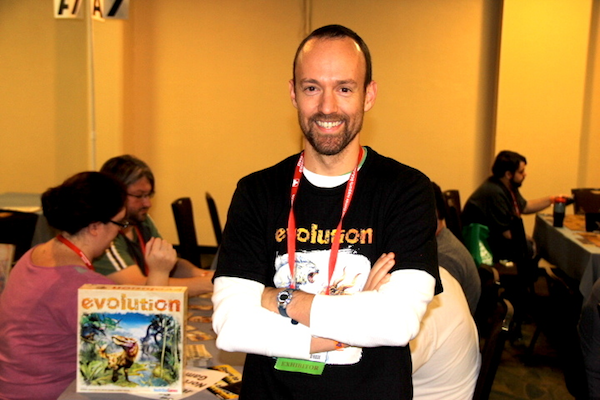

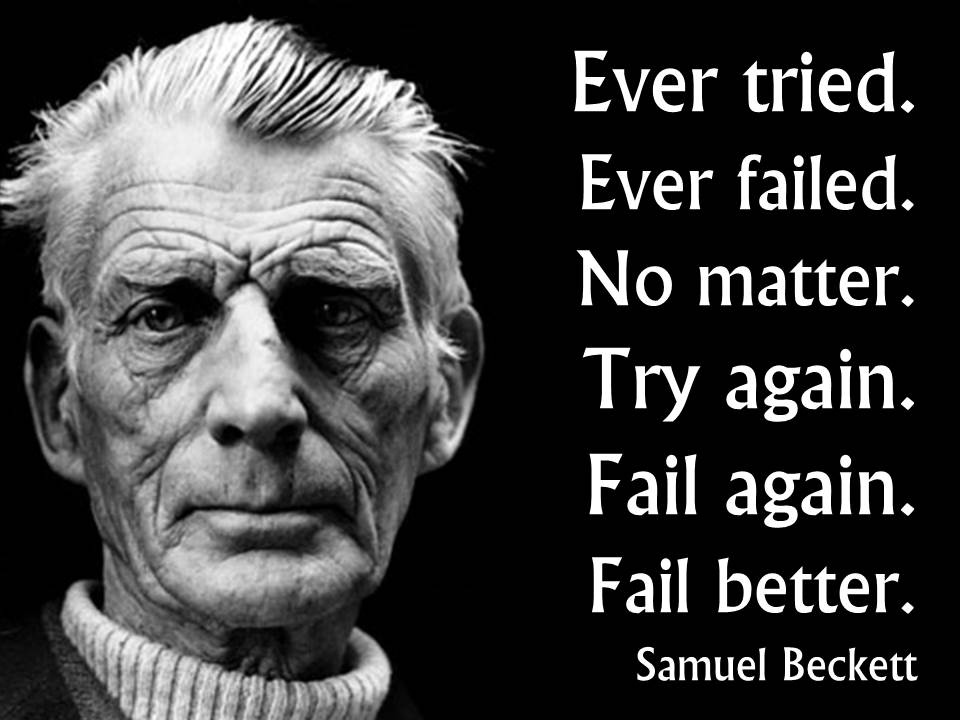


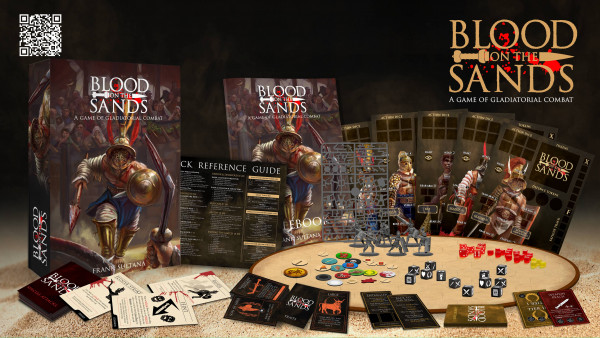





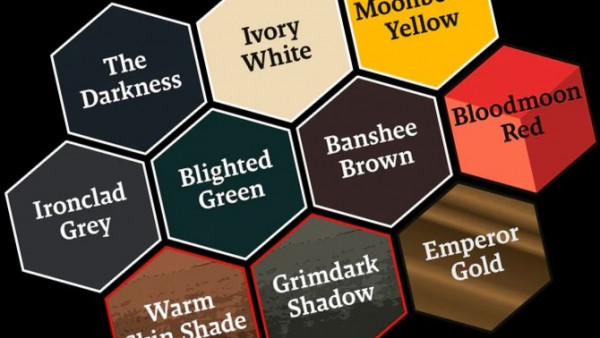

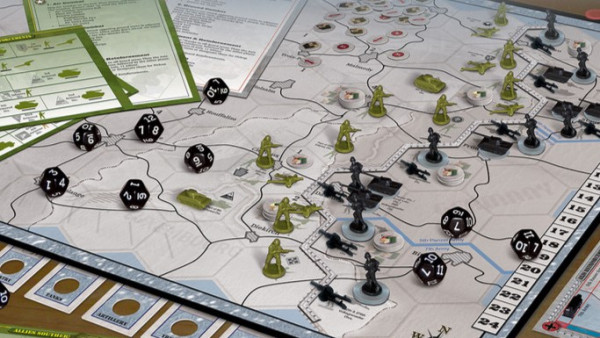












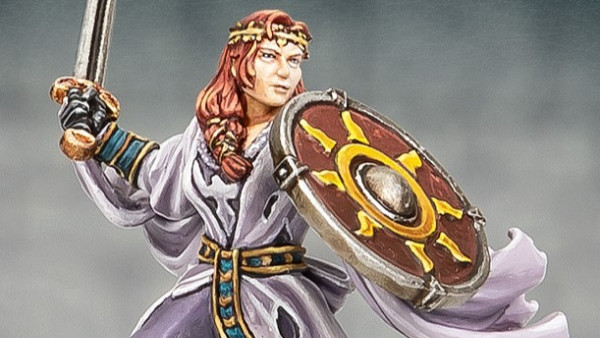










Hmm very interesting, and had made me think a lot! (Yes it hurt) When I was younger I feel I was a lot more competitive and wanting to win anything I put my hand or head to. Compared to now days I’m much older and have suffered the ups and downs of life, I feel I’ve lost that need or want to win everything. Ive noticed it in sports too, that killer serious instinct is gone. My only wish is to enjoy what I am doing. I’m recently getting back into 40k (playing) as I haven’t gamed much for many… Read more »
I honestly believe that the challenge – the mental gymnastics when playing strategy games, or even deduction games like Cluedo – gives a bigger “hit” than winning. I love to play chess. I rarely play chess. I need to play chess against a “similar” player – one who is neither a pushover, nor can win a game in half a dozen moves. I will give my opponent their piece back and allow them to replay an otherwise disastrous move, if it means that the game lasts longer and remains challenging. As a rugby player many, many years ago, I would… Read more »
https://youtu.be/0MigZFRWYHg
Winning with style, honesty & respect is important … nothing more annoying than the complete and utter *beep* when they’ve won. Equally annoying is the cry baby who will find fault with anything except his own mistakes.
I’d also argue that the best games are the ones where even the people who lost had fun.
Those are the kind of games that will be remembered afterwards … not as in who won, but that moment when something funny/interesting/unexpected happened.
btw :
Life is a game … here’s proof :
https://boardgamegeek.com/boardgame/2921/game-of-life
😉
Love your last paragraph… enough said 😉
@cassn says she doesn’t mind getting steamrolled at MtG, but in that pic it looks like she’s nailed @dracs right in the card deck under the table after he played a crushing move. ? On Spencer’s comment – define ‘winner’; I’d say if you had fun and enjoyed yourself then you’re a winner regardless of how well you did at the task. If you define ‘winner’ exclusively as being the victor at a competition then I think he’s talking utter rot; a hollow victory is not going to be productive to your happiness. On Steinhoff’s comment I’ve heard something similar… Read more »
Great article @cassn
Perhaps this is where “Games” and “Sports” are similar but different concepts. Depending on the intentions of the players, the desire to “win” or to “be challenged and tested (ie “actively participate”) become more of less significant.
For some people, the desire to win is fuelled by the fear of being the person who lost.
And then there’s the ‘pro gamer’ leagues … where mere games get turned into (e)sports (and all the drama that is associated with that).
Tournaments can be seen as ‘sports’ instead of games, because winning tends to become more important than fun the more competitive the environment is.
I was walking through a local store to reach the gaming tables at the back when I passed a group of MtG players who were chatting. As I passed I heard the apparent leader of the group state ‘I don’t care about the game as long as I win’.
At that moment I realised 2 things:
1 – I was glad I don’t play with them.
2 – If that’s his window for happiness in gaming then that’s a tiny chance for him to actually enjoy his hobby!
People pick their hobbies for many reasons, whether it is to enrich their life by gaining new skills or knowledge, or just to escape having to watch Eastenders with your spouse. The reasons to choose a hobby are endless but the choice of hobby is because the person believes that they gain something from the hobby. As the article alludes, it is finding the right group of people to share that hobby that is the most important. If gaming is your hobby, this group could be one who does not cares who win and just wants to roll dice and… Read more »
“I like to Smote the ruin of my opponents on the side of the gaming table” and “for me its as much about watching my opponents lose as the winning” also “Can I film you crying when I beat you” and “I’m not coming next week as its getting a bit easy playing you guys”. These are all examples of the Trash talk often thrown around our gaming group (they are just the clean examples). We are all the best of friends and have been for years. I love this kind of banter above all else. When one of us… Read more »
It the competition in game’s win or lose it’s playing that count’s I like just to see any new model’s being tabled.
Excellent article. Although I enjoy winning as much as the next person, I’ve never enjoyed steamrolling my opponent anymore than I’ve enjoyed being steamrolled. It is important to me that both player’s enjoy the game. The games I have most enjoyed are the one’s that are decided by the last die roll of a long and hard fought game, win or lose.
As a long time GM, and having run tournaments either in store or at events for GW when I worked for them, my general feeling is I dislike tournaments – but I do like honest competition. Here is the difference. I like to establish a narrative with my opponent, and within that framework have good honest competition to tease out the story of the battle. Not being competitive robs the thrill of the twists and turns that emerge in that story. Now this is related to RPGs, given RPGs are born out of wargaming. RPGs also need threats, risks and… Read more »
I enjoy playing games with friends, and can enjoy a game without needing to win. Indeed, if I am hosting a game of teaching it to new players, I tend to try not to win ( without making it obvious). The flip side of that was I used to play board games with a guy who did everything he could to win… Soft cheating by misinterpreting rules from turn to turn, “misreading dice”, you name it, he tried it. I don’t even think he thought he was cheating…. I found myself going all out to win honestly, but after 3… Read more »
For me the objective of many games (not RPG’s and narrative games) is to win but the purpose of all games is to have fun. I love tournaments as I find them to be the most social aspect of gaming. Travelling, meeting and playing people you have never met, grabbing a beer with them after the game etc Many folk have talked about the WAAC player possibly bending the rules if not outright cheating, this I am not on board with. A truly competitive player should hopefully want to win within the confines of the ruleset without resorting to cheating… Read more »